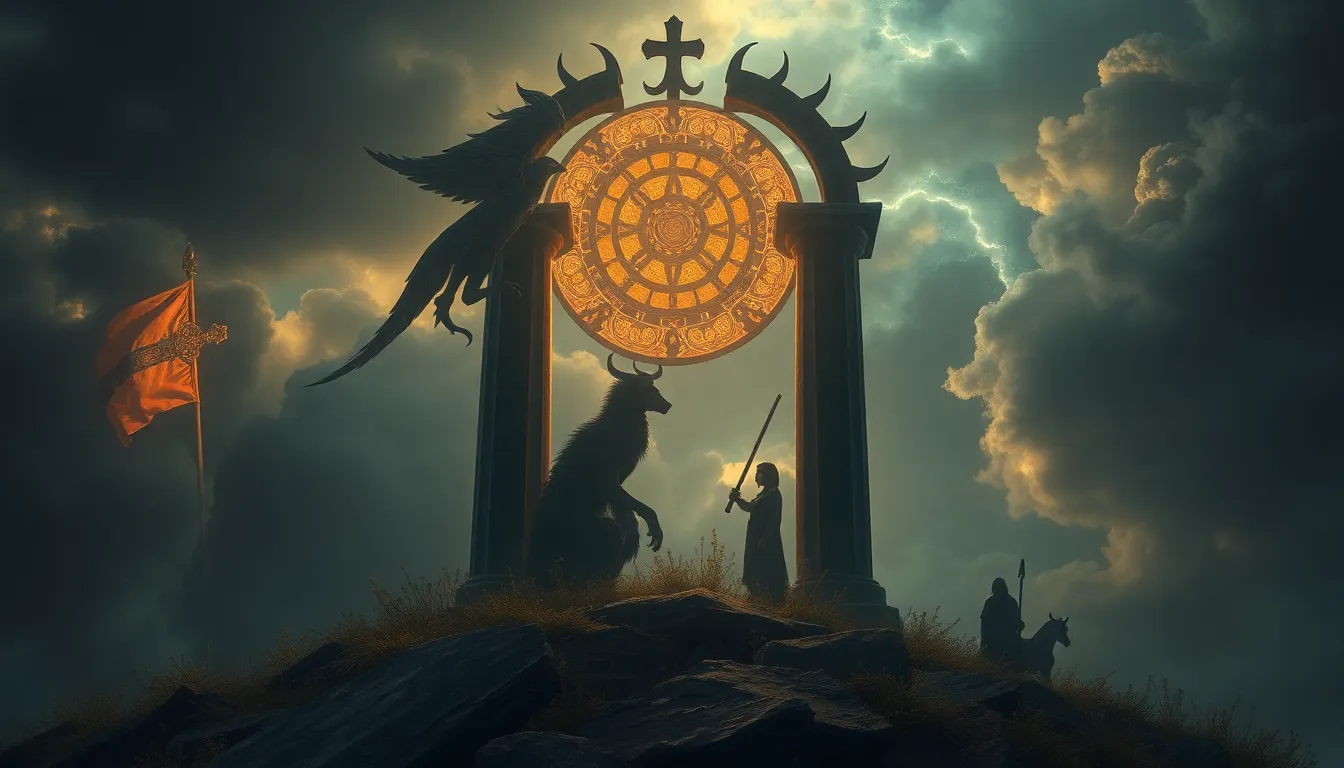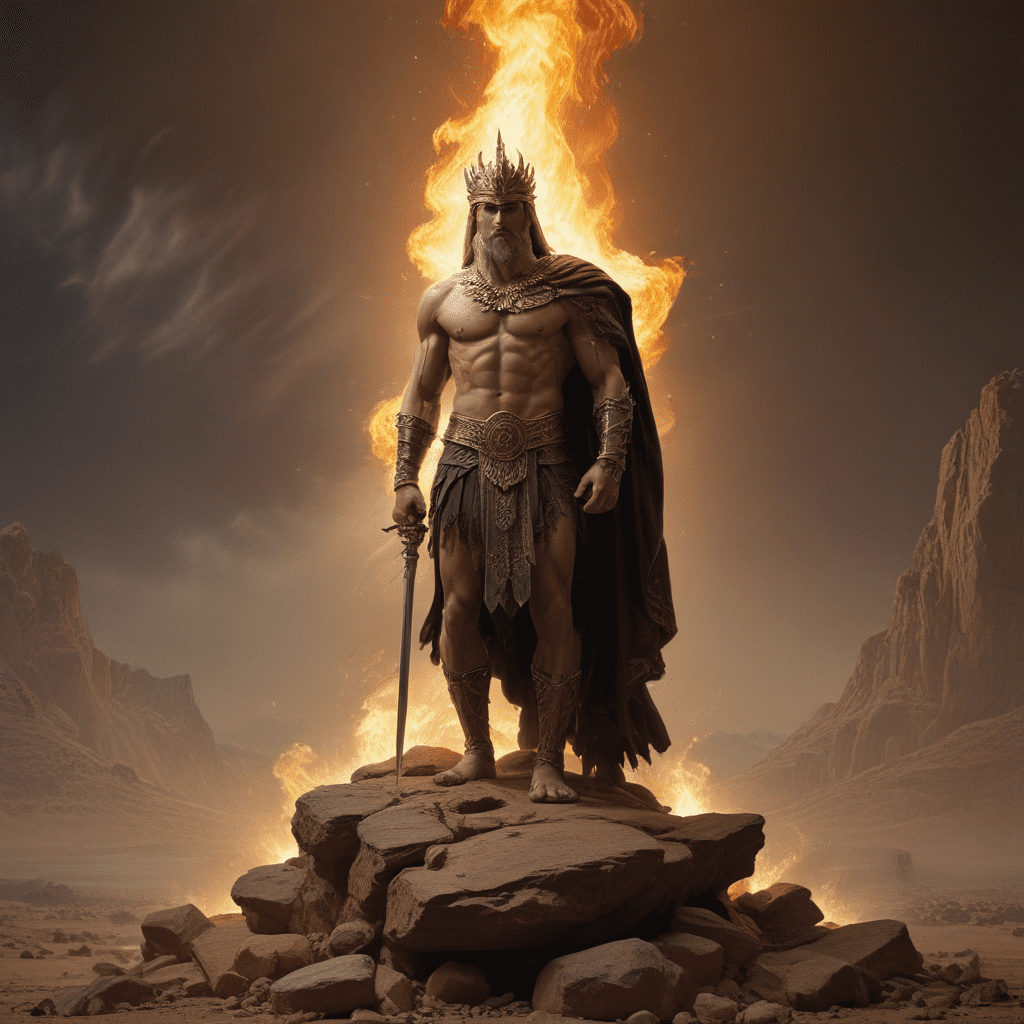Moral Myths and Their Impact on Society: A Historical Overview
I. Introduction
A. Definition of Moral Myths
Moral myths are widely held beliefs or narratives that shape societal norms, values, and ethics. They often arise from cultural stories, religious teachings, or historical events and serve to guide moral behavior in communities.
B. Importance of Studying Moral Myths
Understanding moral myths is crucial as they influence our perceptions of right and wrong, justice, and societal expectations. By examining these myths, we can gain insights into the values that drive human behavior and the consequences of these beliefs for society as a whole.
C. Overview of the Article Structure
This article will explore the origins, historical context, evolution, and contemporary relevance of moral myths, as well as their psychological and sociological impacts, critiques, and future directions.
II. The Origins of Moral Myths
A. Prehistoric Societies and Early Moral Codes
In prehistoric societies, moral codes likely emerged from the need for cooperation and social cohesion. Early humans needed to establish rules to ensure group survival, leading to the development of basic moral principles.
B. The Role of Religion and Spirituality in Shaping Morality
Religion has played a pivotal role in forming moral myths throughout history. Spiritual beliefs often provide frameworks for understanding good and evil, and they establish moral imperatives that followers are expected to adhere to.
C. Cultural Narratives and Their Function in Societal Norms
Cultural narratives, including folklore and mythology, serve to reinforce moral beliefs and societal norms. These stories often carry lessons about virtue, justice, and the consequences of immoral actions.
III. Major Historical Moral Myths
A. The Myth of the Noble Savage
The concept of the “noble savage” suggests that humans are inherently good and that civilization corrupts this purity. This myth has influenced discussions about nature, culture, and morality.
B. The Myth of the Just War
This myth rationalizes warfare under the premise that certain conflicts can be morally justified. It has shaped political discourse and ethical frameworks surrounding military engagement.
C. The Myth of the American Dream
The American Dream posits that anyone can achieve success through hard work and determination. This narrative has significant implications for social mobility and cultural values in the United States.
IV. Moral Myths in Ancient Civilizations
A. Greek Mythology and Concepts of Virtue
Greek mythology is rich with narratives that explore virtues such as courage, wisdom, and justice, which have profoundly influenced Western moral philosophy.
B. Roman Law and Moral Responsibility
The Romans contributed to moral thought through their legal frameworks, which emphasized concepts of justice, fairness, and individual responsibility, impacting future legal systems.
C. Eastern Philosophies: Confucianism and Buddhism
Eastern philosophies offer unique moral frameworks, with Confucianism focusing on social harmony and relational ethics, while Buddhism emphasizes compassion and the alleviation of suffering.
V. The Evolution of Moral Myths Through the Ages
A. The Renaissance and Humanism’s Impact on Morality
The Renaissance marked a shift towards humanism, emphasizing individual potential and rational thought, which redefined moral understanding and ethics.
B. The Enlightenment and Rational Morality
During the Enlightenment, thinkers like Kant and Mill introduced ideas about reason and utilitarianism, challenging traditional moral myths and advocating for a more rational approach to ethics.
C. The Industrial Revolution and Shifts in Social Ethics
The Industrial Revolution brought significant social changes, leading to new moral dilemmas around labor, capitalism, and social justice, which reshaped ethical considerations in society.
VI. Moral Myths in Modern Society
A. The Role of Media in Propagating Moral Myths
Media plays a crucial role in disseminating moral myths, shaping public perceptions, and influencing societal values through stories, news coverage, and entertainment.
B. The Influence of Technology on Ethical Standards
Advancements in technology raise new ethical questions and dilemmas, challenging established moral myths and requiring society to adapt its ethical frameworks.
C. Case Studies: Modern Myths in Politics and Social Justice
- The myth of meritocracy in education and employment
- The narrative of equality in social movements
- The portrayal of whistleblowers in the context of ethical responsibility
VII. The Psychological and Sociological Impact of Moral Myths
A. Cognitive Dissonance and Moral Justifications
Cognitive dissonance occurs when individuals hold conflicting beliefs or values. Moral myths can provide justifications for behaviors that may otherwise be considered unethical, allowing individuals to reconcile these conflicts.
B. The Social Function of Moral Myths in Group Identity
Moral myths often strengthen group identity, fostering a sense of belonging and shared values that can unify a community or society.
C. Impacts on Individual Behavior and Decision-Making
Moral myths influence individual choices and behaviors, shaping how people respond to ethical dilemmas and societal pressures.
VIII. Critiques of Established Moral Myths
A. Philosophical Perspectives: Utilitarianism vs. Deontology
Philosophical debates surrounding moral myths often center on utilitarianism, which values outcomes, versus deontological ethics, which prioritize duties and rules.
B. The Role of Postmodernism in Questioning Moral Absolutes
Postmodern thought challenges the existence of absolute moral truths, suggesting that moral myths are constructed narratives that reflect cultural contexts rather than universal principles.
C. Contemporary Movements Challenging Traditional Moral Narratives
Social movements like feminism, LGBTQ+ rights, and environmental activism question and redefine established moral myths, advocating for a more inclusive and equitable moral framework.
IX. Future Directions: The Relevance of Moral Myths
A. Emerging Moral Myths in a Globalized World
As the world becomes more interconnected, new moral myths are emerging, reflecting global challenges such as climate change, migration, and technological ethics.
B. The Intersection of Global Ethics and Local Beliefs
The interaction between global ethical standards and local cultural beliefs creates a dynamic landscape for moral discourse, requiring sensitivity and adaptability in moral reasoning.
C. The Potential for New Moral Frameworks in Society
There is a growing need for new moral frameworks that address contemporary issues while being inclusive and adaptable to diverse perspectives and experiences.
X. Conclusion
A. Recap of the Importance of Understanding Moral Myths
Understanding moral myths is essential for grasping the complexities of human behavior and the ethical frameworks that guide our actions and decisions.
B. The Ongoing Evolution of Moral Narratives
Moral narratives are not static; they evolve as societies change, reflecting new realities and challenges that require ongoing reflection and adaptation.
C. Call to Action: Reflecting on Personal and Societal Morality
As individuals and communities, we must actively engage with our moral myths, reflecting on their origins, impacts, and relevance in our lives to foster a more ethical and just society.</p



